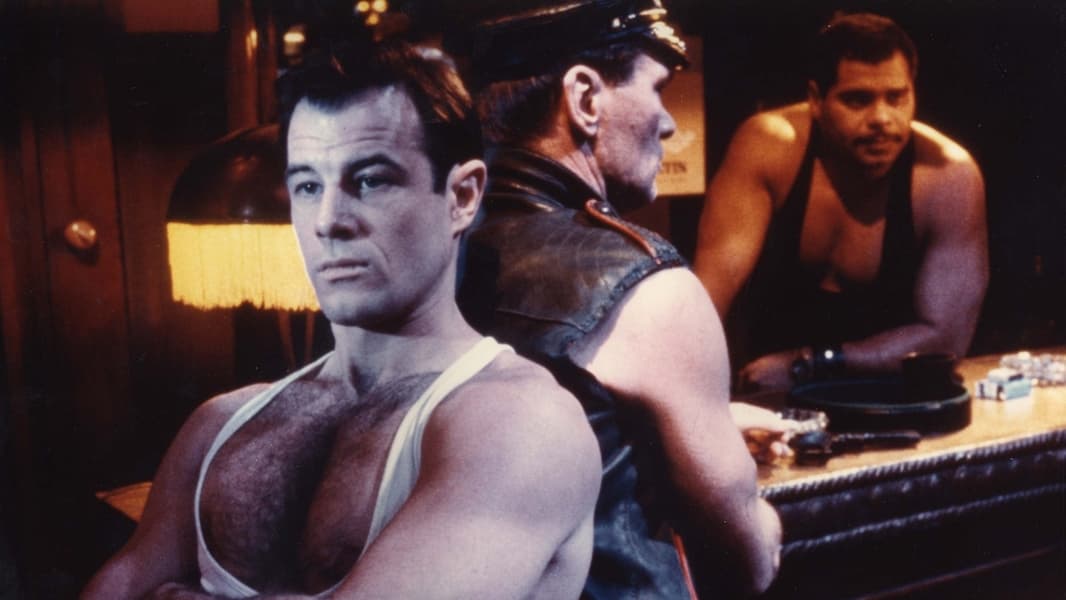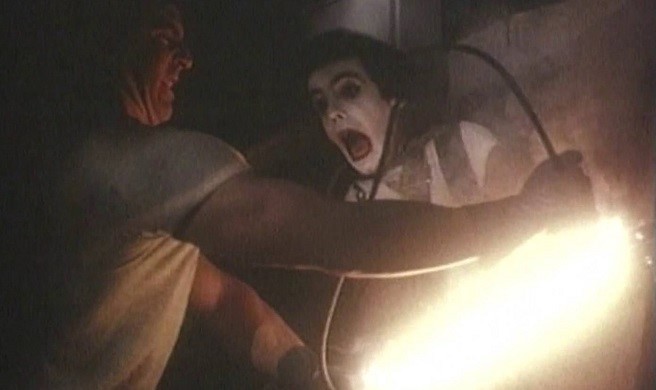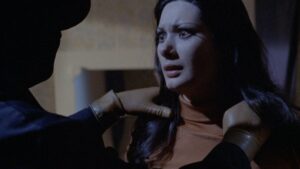– Querelle is the movie for the weekend. In this section every Saturday or Sunday Celluloid Dimension picks a movie for the weekend. The selections are preferably underrated movies or neglected movies that we think should get more attention. Have fun with these recommendations. –
![]()
Querelle (1982) Directed by Rainer Werner Fassbinder
Fassbinder’s theatrics seems blithely comfortable cavorting with the phallocentrism of Jean Genet’s Querelle of Brest, the novel on which the last and most erogenous film directed by the greatest exponent of New German cinema is based. An outré kitsch fantasy overflowing with masculinity being antagonized by a risqué sensibility that encompasses the intricacies of sexual desire through the “pictorialization” of queer identity. “Querelle (Brad Davis) is in danger of finding himself,” presages Madame Lysiane (Jeanne Moreau) about the torrid developments that the eponymous brawny drug dealer sailor is about to face as soon as he sets foot in the quaint port of Brest.
The hokey, artificial extravagance of the artsy, colorful Hollywood studio film style of the gaudy set can appear downright tacky and farcical in contrast to the sleazy melodrama; at its worst even frivolous it can look, but at its best it is a dazzling, beefcake tableau vivant that could qualify as the quintessential embodiment of Rainer Werner Fassbinder’s signature style. As in the majority of his films, the homoerotic passions on display here are as sinuous and thick as the mesomorphic corporeality of Brad Davis; and with the lustful imagery that conjures up the masculine contours of the herculean physique, Fassbinder dramatizes his libertine obsessions in the controversial visual language of Tom of Finland’s seminal gay artwork.
The final result is a baroque, violent queer wonderland that evolves at the pace of a love affair – Franco Nero as the core of the amorous subplot is exquisite – allegorizing Querelle’s universe and the phallic iconography of its architectural pleasures as the over-the-top playground for erotic discovery, where gay people are omnipresent, and other orientations are uncommon. Tragic and gorgeous as well as hysterical and sappy. It was not a planned apotheosis – Fassbinder died of an overdose the same year the film was released – yet it stands as his most playful, mysteriously evocative and comprehensive assemblage of the eccentricities that best signify him as a major film auteur. A very audacious, abrupt conclusion to one of the most extraordinary filmographies in the history of cinema.









